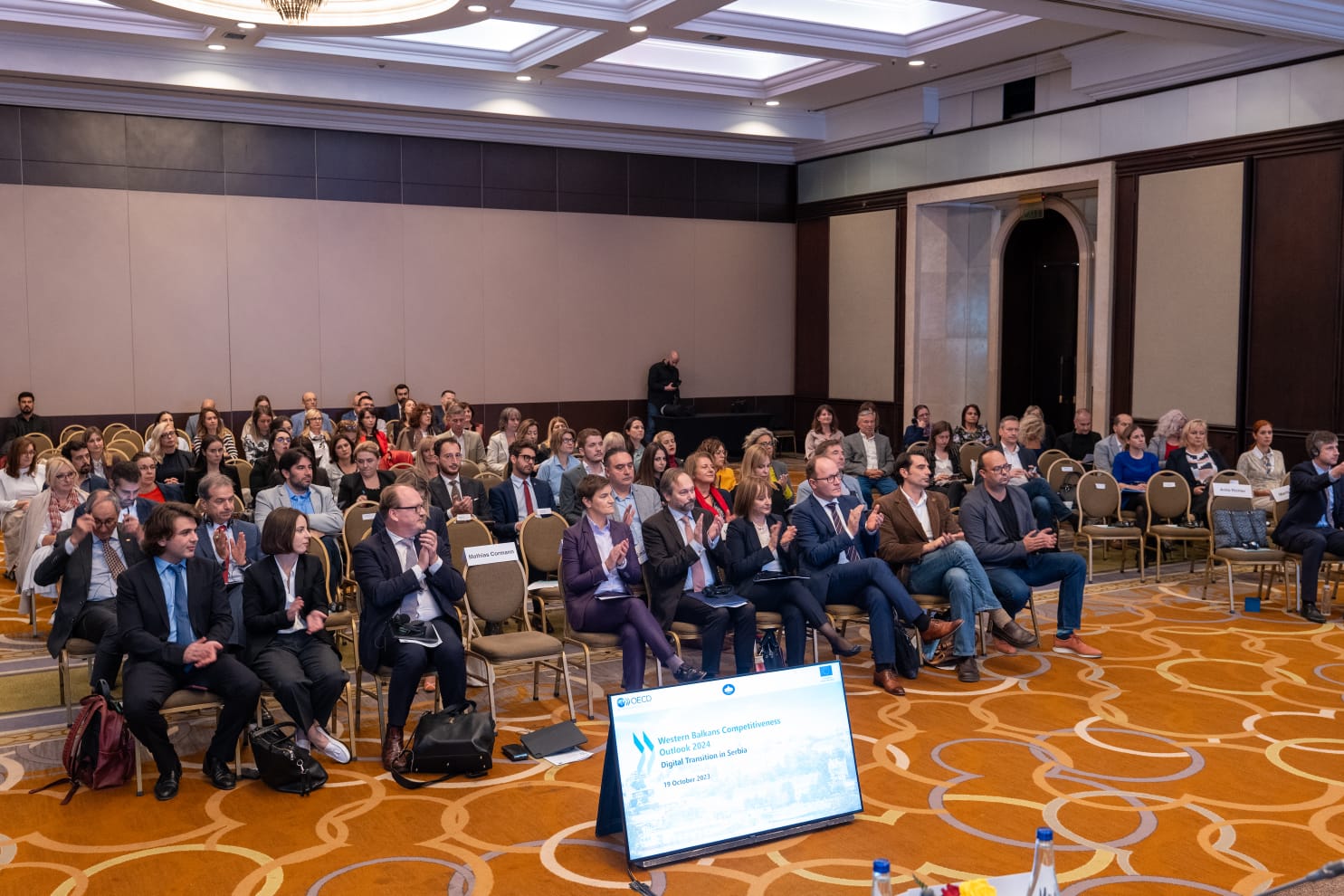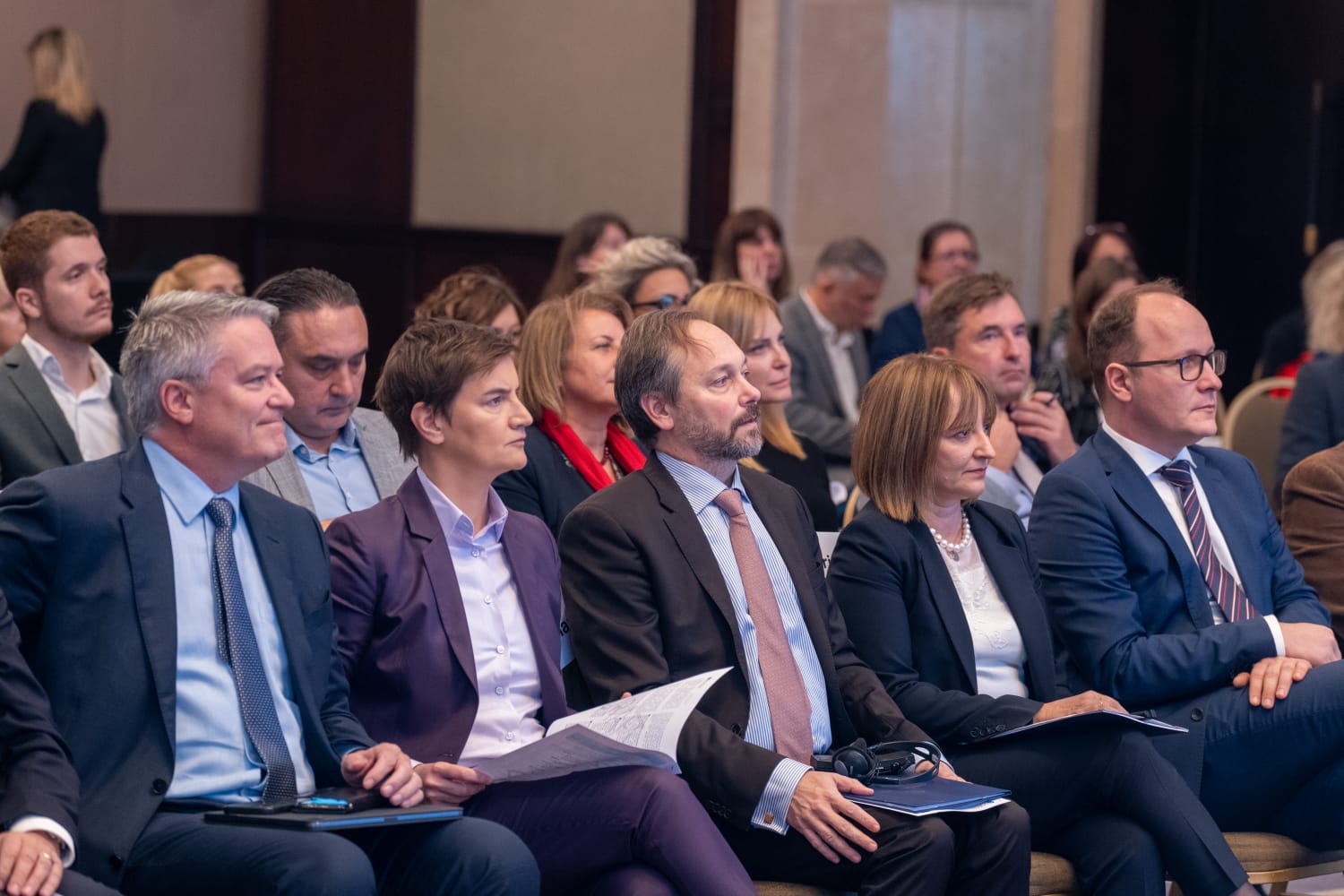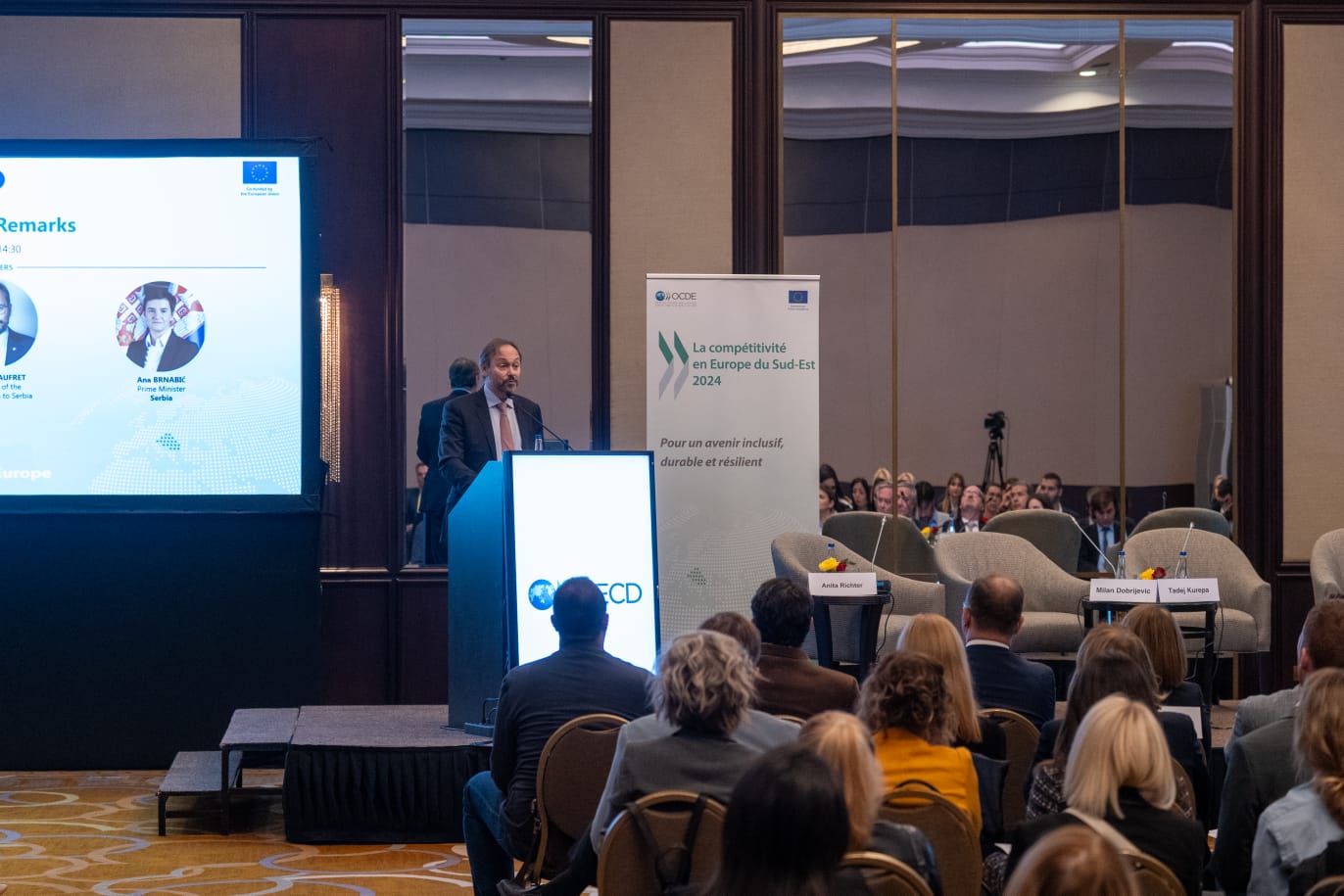OECD Secretary-General Mathias Cormann, Serbia Prime Minister Ana Brnabić, and Ambassador of the European Union to Serbia H.E. Emanuele Giaufret opened the Western Balkans Competitiveness Outlook 2024: Digital Transition in Serbia meeting in Belgrade.
The event was hosted by the OECD South East Europe Regional Programme.

This meeting was part of the Programme’s broader series of fact-finding missions in the region in support of the upcoming fourth iteration of the Competitiveness Outlook for Western Balkans, which will be launched in summer 2024. By assessing macroeconomic policies and structural reforms in the Western Balkans, the publication offers policymakers a comprehensive view of reform progress and offers recommendations on further alignment with OECD standards and best practices favouring further integration with the EU. The fifteen policy areas covered by the Competitiveness Outlook are structured around five clusters: business environment, connectivity and infrastructure, skills system, greening, and digitalisation and technology.
This event centred around the fifth cluster, “digitalisation and technology.” Its objective was to evaluate Serbia’s policy achievements, challenges, and future policy options to accelerate its digital transformation.

Mr. Andreas Schaal, Director of OECD Global Relations, and Ms. Verica Ignajtović, Assistant Minister of the International Cooperation and European Integrations Department, Ministry of Finance of Serbia, set the stage for a panel session, during which government and non-government representatives discussed Serbia’s digital policy landscape. The conversation covered recent and upcoming initiatives driving digital transformation and innovation in Serbia’s public and private sectors as well as how Serbia can benefit from learning from OECD good practice examples.
The event brought together diverse local and international stakeholders involved in the Competitiveness Outlook publication. Participants included government representatives from the Serbian ministries who contributed to the self-assessment, selected non-government stakeholders, and representatives from OECD member state embassies and the European Commission.
Learn more about the OECD’s South East Europe Regional Programme




